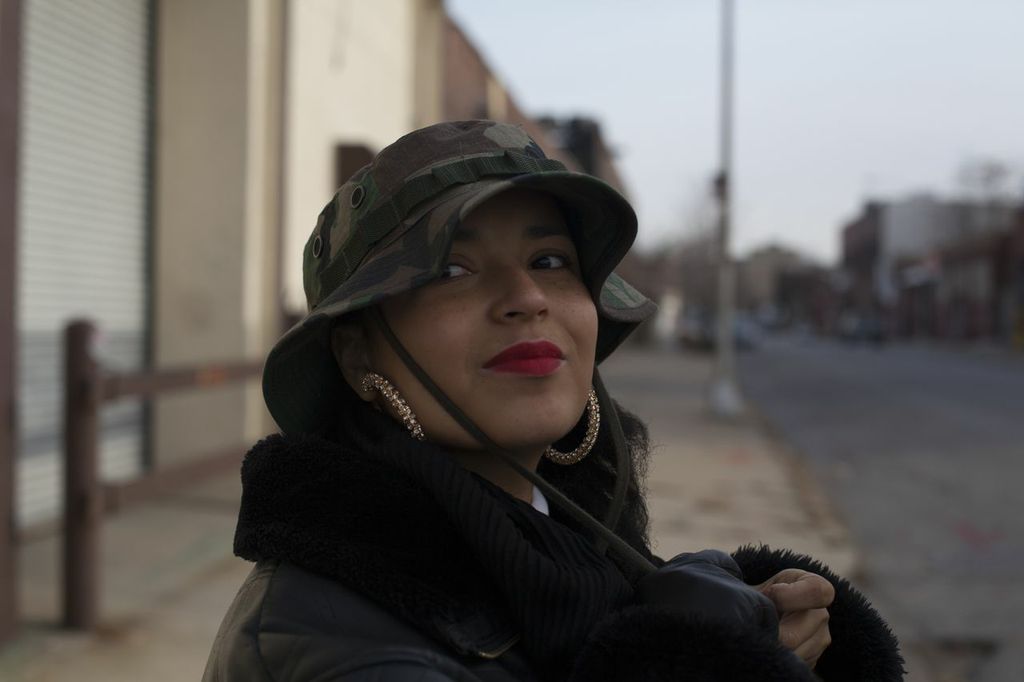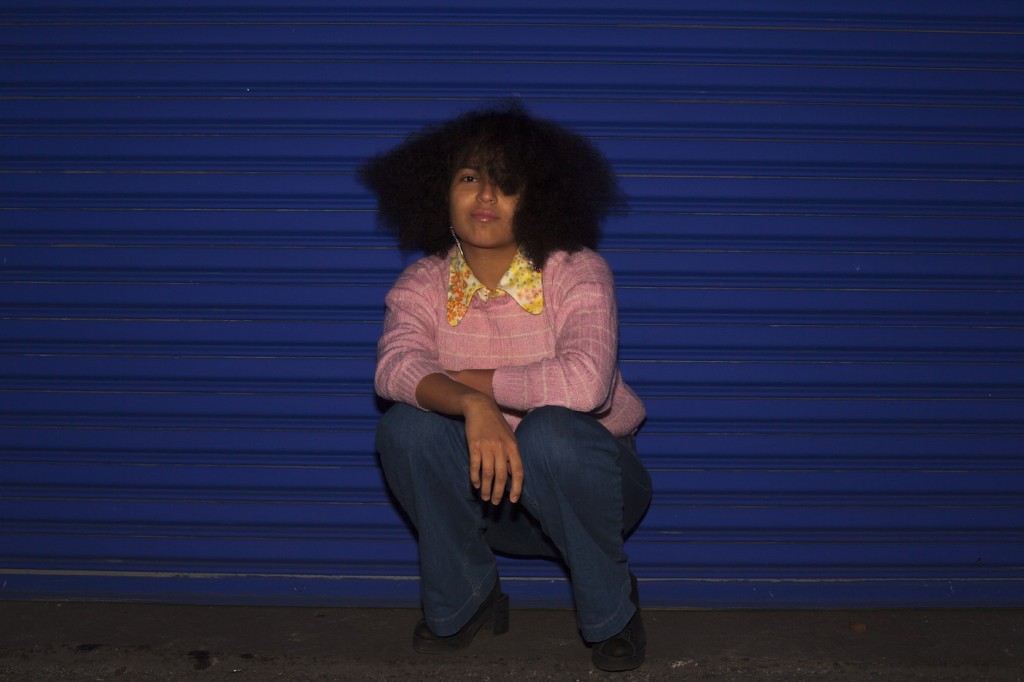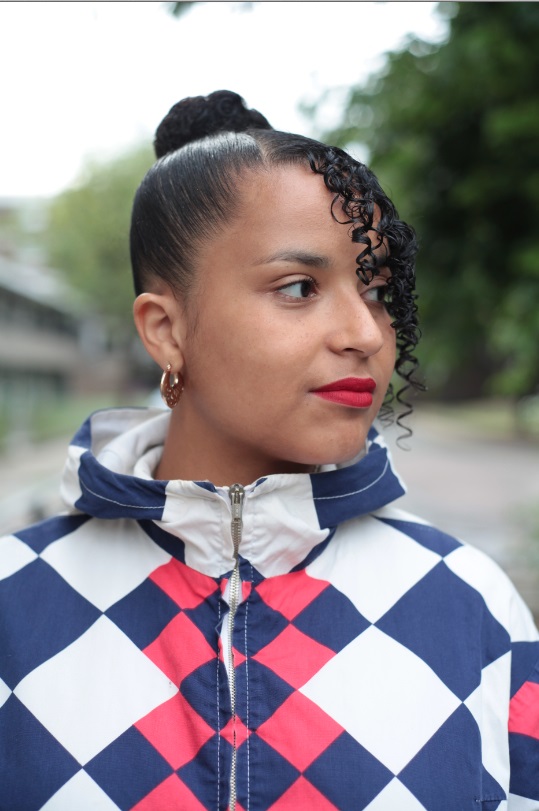Brian Josephs thinks OutKast and Dave Chappelle performing in New York City and Remy Ma being released this summer is too good to be true.
Merriam-Webster defines soul music as a “popular style of music expressing deep emotion that was created by African-Americans.” It’s a clear explanation, but it’s also a pretty malleable one. The definition refutes the idea of traditional, live instrumental numbers being the definitive version of soul. There’s no definitive way to express “deep emotion”; the possibilities are infinite. London singer Fatima of Eglo Records demonstrates this with the help of the multiple producers on her debut album, Yellow Memories. In this cohesive effort, the collaborators come across less as pieces of a puzzle and more like complimentary colors on a canvas. Fatima sounds just as fluent waxing poetic over Oh No’s smoky bass line (“Technology”) as she does mourning over Floating Points’ aquatic percussion (“Talk”).
Yellow Memories flaunts the promise Fatima has shown on three previously released EPs with Eglo Records since 2010. The Stockholm native moved to London in 2006 and started out performing in clubs. Now, she bristles at the opportunity of remaining true to her soulful foundation while experimenting with new ideas. We spoke on Skype about a variety of topics, including how does one stay soulful in a genre changed by emotional disconnection.
Did keeping a larger audience in mind at all influence the making of this album?
I think you always hope that people are gonna connect with it and take it to heart and appreciate the music sonically and lyrically — all the pieces that make the album. So you’re just hoping that people are gonna gravitate toward it and like it. You never know … So you just do it. So far, I’ve been really happy because I’ve been having a lot of good feedback. That’s more than I can ask for, because, to begin with, I gotta be happy with it. Of course it affects me if I get bad criticism, but at the same time, if I know that I’m 100 percent happy with it, it doesn’t matter if other people feel it … because I’m proud of it. But I’m more than happy people are into it.
I read that you were in New York recently.
I was there for like two months, hanging out. Just taking in the city … I’ve been there a few times and it’s good to come back to the city to explore it, because there’s so much to see.
Which area [in Brooklyn] did you reside in for the couple of months?
I was around Bedford Ave., but I was just traveling anywhere really. So I was all over the place really just walking … deeper into Brooklyn. It has some many different types of neighborhoods you know. It changes by a lot, so it’s cool to just experience all of it.
It’s pretty strange. I lived in the Caribbean area, but a couple of blocks up there’s the African-Americans and it switches up more as you move along. It’s definitely a diverse borough.
It’s kind of like London in a way because it’s also mixed up, but obviously it’s still different.
Did you take anything from your residency?
I think it’s that in New York you meet new people, and you get to talk to people that are from a different life story. I think you see everything from all the people singing on subways. You always bump into new characters, and a lot of times it changes your perspective in life.
It’s not a specific thing I can think of right now, but I think in general, you always take that with you — different people you see and meet and your surroundings.
I also wanted to touch on “La Neta.” You filmed that in New York too, right?
It was Sebastian Hallqvist who filmed it. It was just he and I just dragging around in ice-cold winters. It was like, “Just another block, ugh,” and my fingers were like ice cubes. It was in Brooklyn and we went on the trains to Queens.
One thing that was interesting about the video was that it wasn’t the more glamorous parts of the New York. It was by places like the Laundromat and a garage. What influenced your direction for the video?
Because the lyrics are just about how it feels to live your normal day-to-day life and dreaming about things you want to do and the future. You feel like you want to get inspired, but you’re stuck in day-to-day. I feel just walking around the streets that could’ve been in any city.
We wanted to capture the ordinary side of your life, but then when it comes to the chorus, we had to switch it up because that’s when I’m pepping myself up — “I could do what I want to do! Nothing is impossible!”
Was the day-to-day concept an influence in your “Family” video?
I don’t live in Stockholm, so I rarely see my family. So the inspiration to that video just this was filmed both in London and Stockholm, where I’m from. It was filmed by Husky. It was filmed in my old house in London, and it was me just reminiscing about my time in Stockholm. Then we went to Stockholm and filmed it in my mom’s house. I gathered all of my brothers and sisters and my mom, and we did a little reunion. I’ve been living in London the past seven years, so this has been my day-to-day really. I’ve been traveling around a bit but looking back at how it used to be and thinking about people that meant a lot to me. In this case it’s my family and friends, so that’s what this video is based on.
The album sounds pretty cohesive with the number of producers you have, including Oh No. How is it like trying to get all these producers and trying to get it to mesh into one piece of work?
Whenever it comes to me having to find a producer, sometimes I get recommend by people. For example, Alexander Nut from Eglo, he might be like, “I’ve heard of this and that. You should check him out.” A lot of times I just listen to music myself because I’m a fan of music in general. I would just be hitting up people that I love, hoping to work with them.
I love Oh No’s stuff; I think he’s really dope. I feel very blessed to have everybody on this project because then it goes back to the thing that you said about different styles. I really like different types of music, but what I do is soul music at the end of the day. When it comes to us figuring out what songs work together [for Yellow Memories], it’s a little bit like puzzle because some tunes might just not fit in. But I feel like what we got now on Yellow Memories feels like it works together, even though it doesn’t all have the same producer and doesn’t all sound the same.
None of it sounds forced either.
That’s good, because it wasn’t [laughs]! I only work with people I like. Nothing was going to be used just because. We’re always going to choose the stuff that we really feel and something that’s quality music to us.
It’s interesting that you said there are all these variations and it’s still soul at the end of the day. It sort of goes back to soul being less of a genre and more of an aesthetic.
Yeah, that’s how I feel. As long as it hits me in the heart, like really makes me feel, is really important. There’s a lot of music made nowadays that’s just made for the sake of getting money, flossing, and just showing off material stuff. It’s cool to an extent; with the habitual aspect of things, I do care about how I look. I think that part is fun, but I don’t think it’s very good if you only focus on that. It’s gotta have a balance to it. So I feel like the music, at least, should have genuine meaning. Otherwise, to me, what’s the point? It’s gotta have some meaning or it’s gotta make you feel, whether or not it’s a deep song or it’s just something you just wanna shake you ass to [laughs]. It’s gotta be some quality stuff, not just good packaging because I feel that’s problematic. A lot of kids grow up and I feel like that’s all they see; it gets shoved down their throat and they get brainwashed. There are some good artists out there. You just got to pay attention to the right stuff.
What are some of your influences? I know Aaliyah is one of them.
I love her music. I love the bits that Timbaland produced. I love Missy Elliott, too. I was born in ’85, so I grew up in the ‘90s. Everything that was from MTV, I was watching it. I used to be in front of MTV all the time checking out videos. I used to like a lot of hip-hop … like Wu-Tang, A Tribe Called Quest.
My mom used to listen to a lot of Sade and Neneh Cherry. In Stockholm when I grew up, it was really big on Eurodance music — stuff like La Bouche’s “Be My Lover.” I grew up with all that stuff.
What is it about the artists that call back to you when you think about them?
For example: Busta Rhymes. When I first saw the video to “Gimme Some More,” I was like, “What?!” Because I’m the type of person to be like, OK, I’ll go into like a masquerade show and then I’ll walk out with a massive mouse head — like a Danger Mouse mask — and then I’ll walk in there to buy some platform shoes or just some crazy stuff. I like all those things, and when I saw the video for it, I was like … That video was so crazy and so dope. It was so inspiring and opened my mind. The videos with Missy and stuff, all that was so inspiring and really forward thinking. They weren’t scared of nothing.
Those type of artists, musically they have something unique. Ella Fitzgerald, I might sit there and listen to the way she scats like it’s on some next level soul.
How do you feel about the state of soul and R&B now?
There is some pretty soulless music out there, let’s be honest. And that’s a shame. There are some good ones in there, but I feel like everyone that grew up around the time that I grew up had so many good groups. Every week I felt there was something good, and that stuff is still fresh today. I don’t know. There’s a lot of stuff that feels like it doesn’t have the longevity, which is a shame. That’s why all the quality music should be made.
Is it difficult to find inspiration these days?
I think there is a lot of good music out there still despite all the stuff we’ve been discussing. It ain’t about all this soulless music. There still is a lot of good stuff out there, so I don’t think it’s difficult really. There’s always something out there. If not, you just gotta look back because there’s still so much music I don’t even know about.
After Yellow Memory, is there any particular musical landscape you didn’t touch that you think you’re going to in the future?
We didn’t do like death metal. Might touch on that later on [laughs]. This is just a first album. Some hip-hop albums are like, “I got 50 songs on me.” Then you’re like, “OK, quality over quantity.” Let’s try to select a few real good ones that we’re happy with. I feel like there’s room for so much more and so many different types of experimentation and sounds, so I can’t tell you how the next thing will sound like, but I’m looking into it now.
Of course, there are a lot of things that I didn’t do that could add to the next thing, but I’m happy about how it came out. Only time will tell.
I guess you can find soul in death metal, can’t you?
I guess I could [laughs]. I got my ideas what I’d like to do, but I just gotta keep them under the wraps for a bit.




